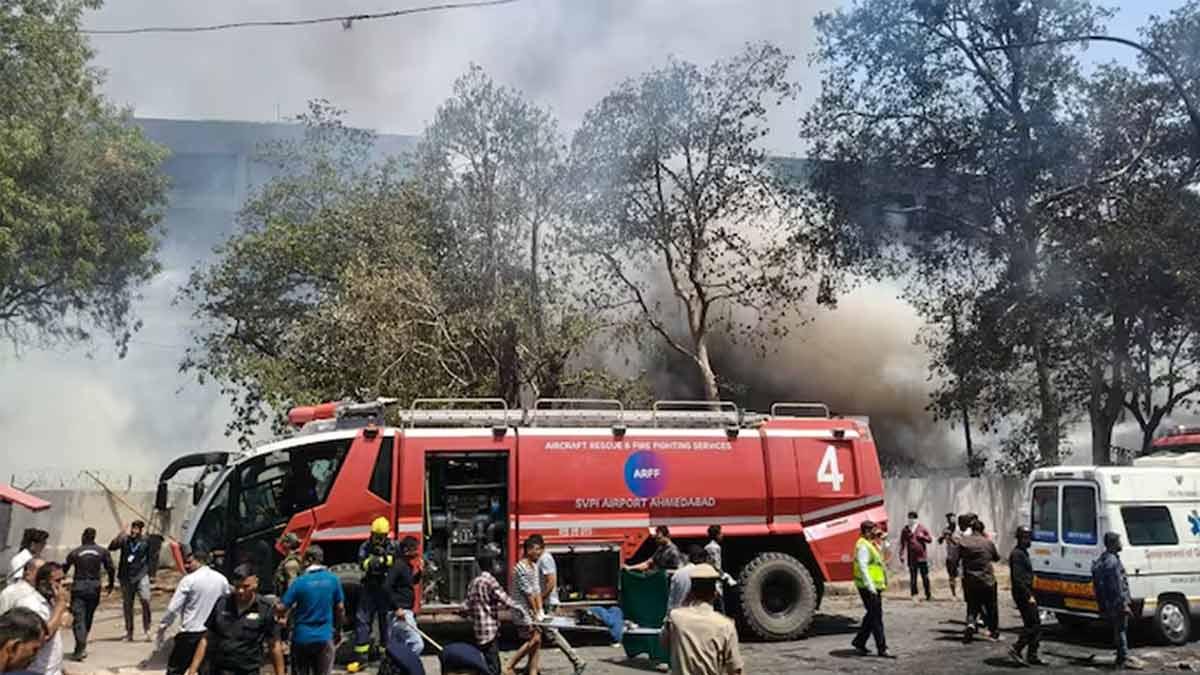The recent crash of an Air India Boeing 787 in Ahmedabad, killing almost 300 people, made waves across the international aviation industry. But Airbus has remained firm that such accidents can never be viewed from a commercial perspective.
Christian Scherer, Airbus' Chief Commercial Officer, spoke to journalists before the Paris Air Show, saying that safety and not competition is the top priority for the aviation industry. As Bloomberg News quotes Scherer, "Safety is in everything that we do, so the tragedy in India—we don't see that in any way, shape or form as a competitive input. It is, if anything, a reminder to us all that aviation has become so safe that, statistically speaking, every accident is totally unacceptable."
His comments follow authorities ongoing investigation into Thursday's deadly crash, when a Boeing 787 Dreamliner crashed just moments after it had taken off from Ahmedabad, crashing in the Meghani area. The tragedy represents one of the deadliest air disasters in recent years—and the first fatal crash of a Dreamliner aircraft.
Even with the ferocious competition between Boeing and Airbus, Scherer made it clear that such an incident transcends business competition. "Each accident in this business is a grim reminder of what can happen," he stated. "The whole industry needs to approach every accident as an unacceptable failure—because for the people involved, it always is."
Airbus CEO Guillaume Faury echoed this position, underlining the need to solidify a culture of safety across the industry. Airbus CFO Thomas Toepfer, in comments to Bloomberg, indicated that the company is not likely to start share buybacks in the near future, citing ongoing market volatility.
At the same time, Boeing management has revised their plans following the tragedy. CEO Kelly Ortberg, who was to attend the Paris Air Show for the first time in his leadership, has canceled his journey, along with Boeing Commercial Airplanes President Stephanie Pope. "We want to remain with our team and maintain our focus on our customer and the investigation," Ortberg said.
Set to take place at Le Bourget Airport from June 16 to 22, the Paris Air Show is the largest global event for the aviation sector, typically featuring major announcements and aircraft orders. This year’s edition, however, will take place under the heavy cloud of the Ahmedabad crash, a tragedy that has stunned the world.
Airbus Eyes Growth, India Leads the Charge
While showing genuine condolences and refraining from opportunism, Airbus remains focused on prospects for future industry trends. In another report, Bloomberg cited that the company estimates the world commercial aircraft fleet will double by 2044 to a close to 50,000 active jets. The boom will be fueled mainly by increased demand from rising aviation markets, with India set to grow the fastest locally and China to top capacity overall.
Airbus forecasts the addition of approximately 24,480 aircraft over the next two decades. Single-aisle models such as the A320 and Boeing 737 will make up the bulk of this growth. The company also predicts global passenger traffic to rise at an annual rate of 3.6%, with the Middle East playing a significant role in fueling this demand.
All this notwithstanding, worries regarding supply bottlenecks in the chain—vying from engine delays to even onboard lavatory shortages—don't seem to deter airlines. India alone has seen record orders, including Air India's acquisition of 570 airplanes and IndiGo's pipeline of more than 900 jets.
Airbus has reaffirmed customer demand remains strong, with no major market decline to be anticipated anytime soon.
Boeing Faces Increasing Scrutiny
Boeing, meanwhile, is wrestling with a string of issues outside of the Ahmedabad accident. The firm has been wrestling with operational failures, regulatory investigations, and aggregate losses of $35 billion since 2019.
The 737 Max, Boeing's former prize narrow-body jet, still gets bogged down in its history of two deadly crashes and subsequent issues, like a door plug failure. Boeing lost an astonishing $11.8 billion in 2024.
But there are hints of a reversal. In Q1 2025, the firm reduced its loss to $31 million—a indication of gradual recovery. Boeing also continues to win huge orders, such as a $96 billion deal with Qatar.
Nevertheless, the onus is increasing on Boeing to assure airlines and regulators of its dedication to safety and reliable performance. While Airbus rides high on robust demand and generally untroubled operations, Boeing now has the dual task of rebuilding confidence and reasserting its previously commanding position within the global aerospace industry.
Read also| Home Secretary to Head PM‑Backed High‑Level Panel Probing Air India Flight AI‑171 Crash
Read also| Air India Flights Rerouted Amid Rising Tensions in Iran-Israel Conflict


















